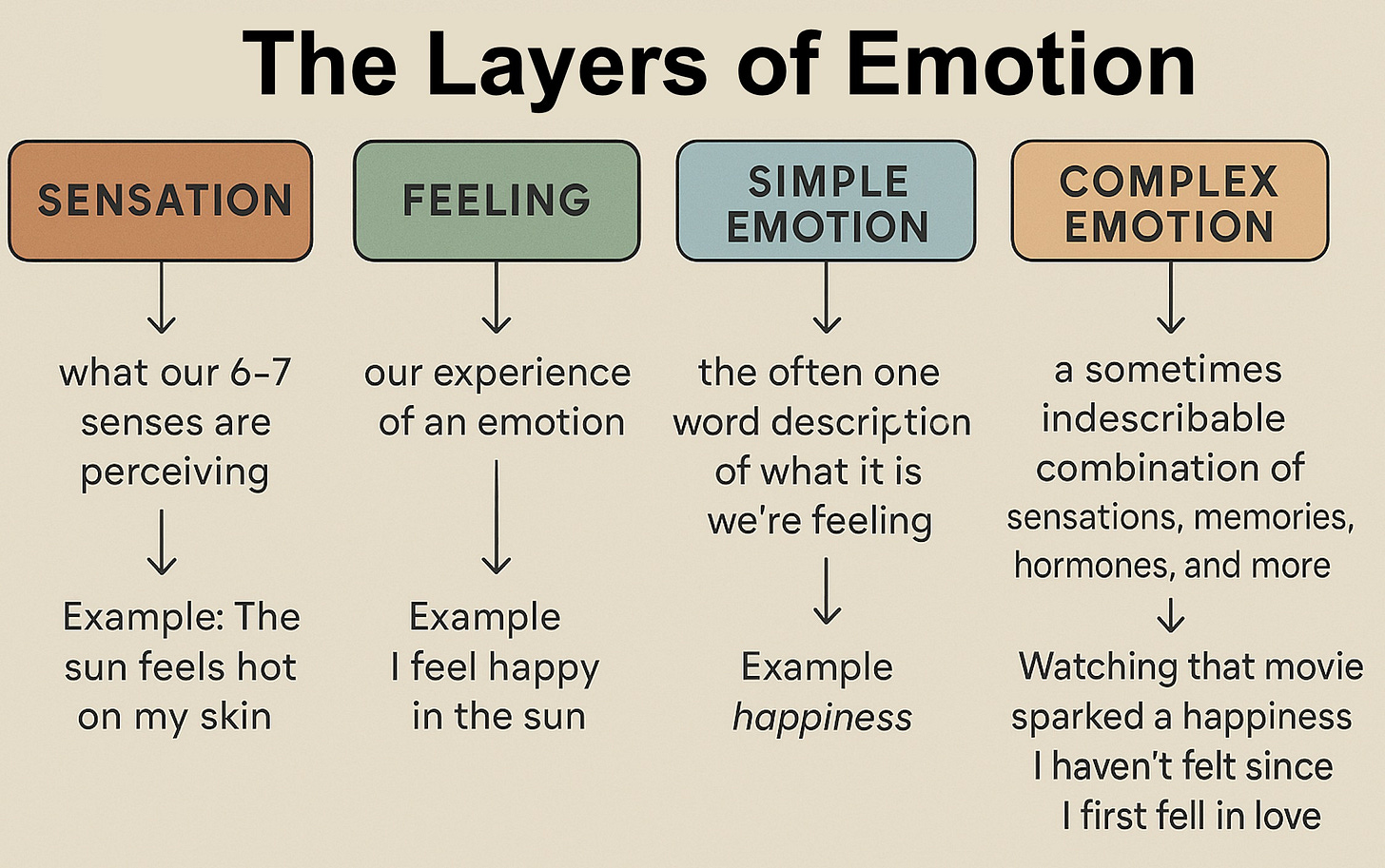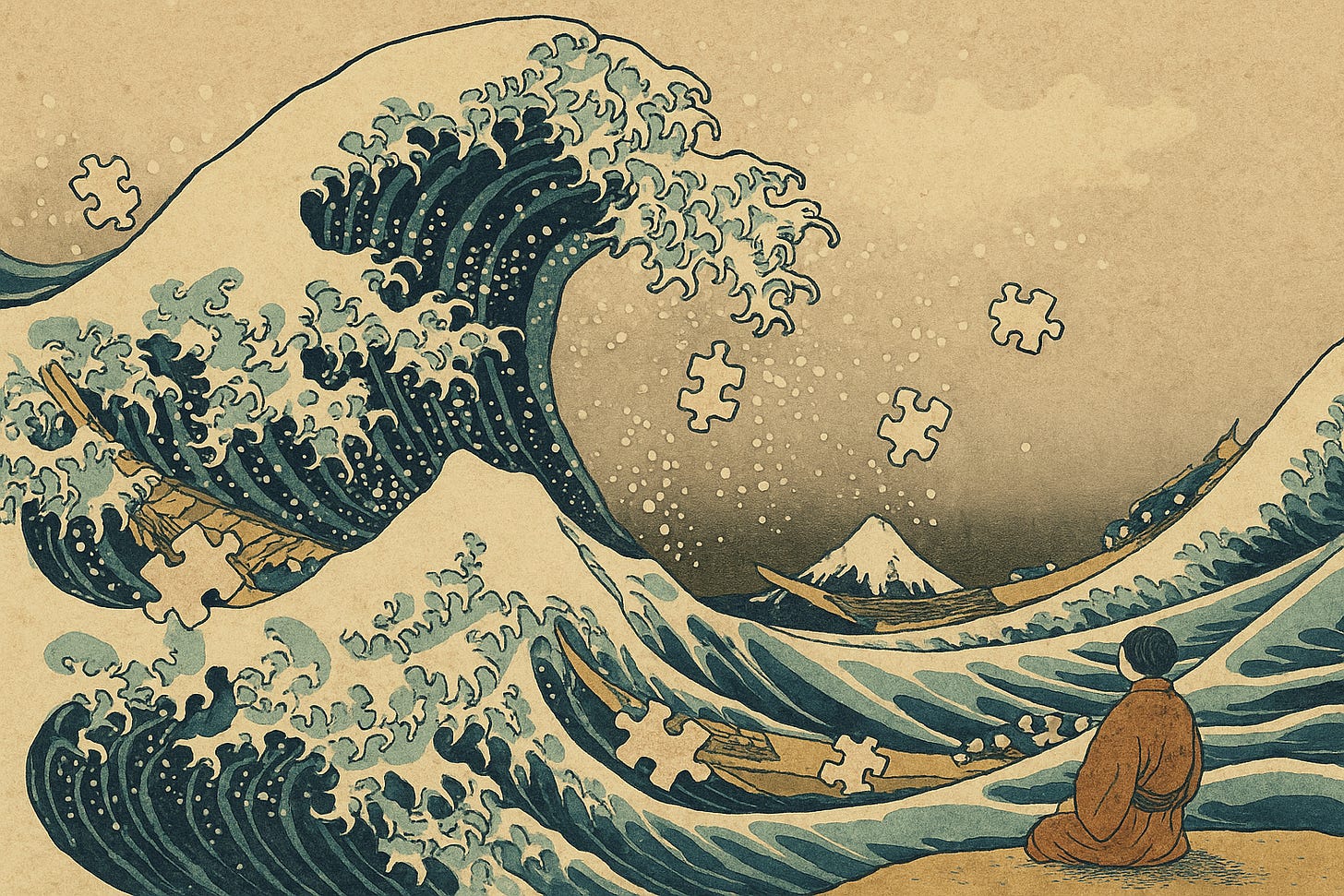How Emotions Can Help Guide Our Puzzles
And how to talk about them
As someone who has lived with, and sometimes struggled with, bi-polar disorder for most of my life I was never able to trust my emotions. At times they would swing, wildly, without notice and without any basis in reality. I have spent my whole life learning to pause when I feel an emotion washing over me. I would have to pause to observe the emotion, to observe my reality, and evaluate if there is any connection between the two. If there is I could sometimes proceed cautiously through it, but even when there is a tie the power of the emotion could easily overwhelm any rational thoughts on how to handle the situation. It was almost always best to dissociate and try to approach the situation with reason.
Either through age, exhaustive practice, or closely following brain science advancement to learn new natural treatment/coping mechanisms I feel like I have been well in control of my disorder for a few years now. As a refresher I was diagnosed as a kid but didn’t believe them cause they just talked to me for 30 minutes. I didn’t think a diagnoses was possible in that time. Six years ago a brain scan verified the diagnosis and, for me, that was actually the trigger that gave me greater control. I’m always walking along a cliff, of sorts, of my emotional well-being. Sometimes I’ll wander a bit too close to the edge and just a peek over the edge will remind me to find/practice one of my remedies to open the path away from the edge. From this place of greater awareness and control of my emotions I have been able to explore them and experience them from a place of curiosity, knowing that usually I can snap out of them, dissociating for safety, if needed.
By better controlling the negative ones, which only create a sad and lonely world, I’m able to experience more of the positive ones, which create a world of beauty and love. I also get to explore mystical emotions and plenty I still don’t understand. With a lifetime of experience evaluating my emotions when I come across something I don’t understand it’s especially interesting to me. As I said in my prior post we just don’t talk much about our complex emotions. I think unpacking them can lead to greater understanding of ourselves, greater presence, and a more enriched life.
Understanding the spectrum of emotions can help us better catalog our experiences and seek out ones that help us on our journey. But we jumble them all together all the time. Here’s the hierarchy as I see it to layers of emotions:
Many people would argue sensations are not part of emotions, but they’re the foundation for externally-provoked emotions. When the sun hits our skin, our body produces vitamin D (actually a hormone, but whatevs). That vitamin D is used in many processes in the body, including mood regulation, so it actually makes us feel good. Our brain remembers that and will give us some endorphins just for getting out is the sun, as a reward for providing the body/brain with essential nutrients/hormones. That’s one of many, many examples of how external stimuli unconsciously provoke emotions.
Complex emotions are a dialogue in our brain between emotional centers (the amygdala is one, but not the only) and higher-order thinking regions (our judgment centers, like the prefrontal cortex). A beautiful dialogue with layers and layers of feelings, thoughts, memories intertwined into a tapestry of emotion. Sometimes too complex to possibly explain. “You know, that feeling when….” Sometimes the best we can do is describe when it happens, not what it is.
When complex emotions emerge from seemingly nowhere, they may be sparked by hidden sensory cues, subconscious memories, or the brain’s own restless circuitry stitching together patterns. They can also be colored by the body’s unseen rhythms, or perhaps even by signals from the world we don’t yet fully understand. The result is a sudden flood of feeling, inexplicable yet undeniably real
.
The important part, in our Puzzle building, is to pay attention to how the emotions color our experiences from the day. Within presence our brains are engaging so fully in the world that our judgement & emotional pathways are disrupted, being fully engulfed in the sensations of the present moment. They’re two very different pathways. Then in self-reflection our brain will rerun the day through those dialogue pathways to better understand the experience, connecting it with prior experiences that were similar, emotions that normally happen in those moments, etc. This will give us much deeper clues about whether the day was in-line with our highest path or not. Beyond the frustrations of our complex world and simple joys of presence there lies truly valuable information about how we can express ourselves in a way that honors our neural framework foundations, our station in life, and what kind of Puzzle we want to create.




Enjoying your vulnerability in your writing. It's a daily practice of mine to reframe my emotions. Sometimes I feel down on myself for having to reframe them, but the goal in time is reframing to rewire 'permanently'